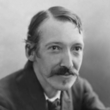The war of the worlds
Publisher
Varies, see individual formats and editions
Publication Date
Varies, see individual formats and editions
Language
English
Appears on list
Description
Introduction by Arthur C. ClarkeCommentary by Jules Verne and an anonymous reviewer from The Critic“No one would have believed in the last years of the nineteenth century that this world was being watched keenly and closely by intelligences greater than man’s and yet as mortal as his own.” Thus begins one of the most terrifying and morally prescient science fiction novels ever penned. Beginning with a series of strange flashes in the distant night sky, the Martian attack initially causes little concern on Earth. Then the destruction erupts—ten massive aliens roam England and destroy with heat rays everything in their path. Very soon humankind finds itself on the brink of extinction. H. G. Wells raises questions of mortality, man’s place in nature, and the evil lurking in the technological future—questions that remain urgently relevant in the twenty-first century.Includes a Modern Library Reading Group Guide
More Details
Contributors
ISBN
9780141441030
9780812505153
9781620115022
9780688301378
9780307808035
9780575115354
9780553213386
9781590171585
9781481555586
9780812505153
9781620115022
9780688301378
9780307808035
9780575115354
9780553213386
9781590171585
9781481555586
Appears on list
Excerpt
Loading Excerpt...
Similar Titles From NoveList
NoveList provides detailed suggestions for titles you might like if you enjoyed this book. Suggestions are based on recommendations from librarians and other contributors.
The massacre of mankind: sequel to the war of the worlds ; authorized by the H.G. Wells estate - Baxter, Stephen
Those who were intrigued and captivated by H.G. Wells' War of the Worlds will want to follow up with Stephen Baxter's 21st-century sequel, Massacre of Mankind, which adopts the tone and style of Wells' original while narrating the second Martian invasion. -- Katherine Johnson
Compelling plot-twists and engaging characters are important component in both of these dramatic, issue-oriented adventures. Thought-provoking philosophic questions arise from social and personal power struggles between Martians and Earthlings whether on Dick's Earth dominated Mars or Wells's Mars threatened Earth. -- Matthew Ransom
These science fiction novels paint a bleak and dramatic view of first contact. Cold People expands on the premise first explored in War of the Worlds, showing technologically advanced aliens who treat humans as advanced civilizations have historically treated primitive societies on Earth. -- Alicia Cavitt
Not just compelling adventures, both of these novels are thought-provoking stories about personal and social ethics. Issue-oriented especially on questions of might and right, Wells imagines Mars invading Earth, Bradbury the opposite. Each has sympathetic characters caught in dramatic, engaging situations. -- Matthew Ransom
Two early aspects of the Martian mystique are illustrated by these fast-paced, action-packed, dramatic, and descriptive novels. Wells's Martians are horrible monsters bent on conquering the earth. Burroughs's Earthman hero becomes immeshed in adventure among diverse humanoid communities on Mars. -- Matthew Ransom
Similar Authors From NoveList
NoveList provides detailed suggestions for other authors you might want to read if you enjoyed this book. Suggestions are based on recommendations from librarians and other contributors.
Though H. G. Wells is sparer in his prose and Edgar Rice Burroughs more lyrical, both create action-packed, dramatic stories at science fiction's foundation. Both are descriptive and engaging, absorbing readers in fantastic adventures that pit the Victorian Era's resourceful ingenuity against peoples and creatures of other worlds and times. -- Matthew Ransom
Edward Bellamy and H. G. Wells wrote science fiction with socialist themes. Though Bellamy was most famous for a single, highly political work, Wells is a hugely influential science fiction writer. Both write detailed novels concerned with an individual's role in society. -- Kaitlyn Moore
Jules Verne and H. G. Wells are widely cited as the fathers of modern science fiction. Verne's action-packed adventures are more optimistic about technology than Wells's bleak warnings, but their novels still share many now-familiar genre themes. Eccentric scientists abound, and both also envision trips to the moon. -- Michael Shumate
Both prophetic science fiction authors predicted real-world technological changes and speculated on some of the social impacts they would cause. William Gibson predicted cyberspace and the metaverse; H.G. Wells foresaw flight, space travel, and atomic bombs, among many other developments. -- Autumn Winters
Legendary science fiction writers H. G. Wells and Octavia Butler are both known for their thought-provoking, sometimes bleak stories that combine discussions of theoretical technologies with in-depth explorations of the nature of humanity. -- Stephen Ashley
Ray Bradbury's American and H. G. Wells' British perspectives produce different literary flavors. Still, both create imaginative science fiction with strong fantasy influences. Both are descriptive yet spare, moody yet hopeful. Their thought-provoking work is often issue-oriented though strongly character or plot centered. -- Matthew Ransom
Readers who love the classic science fiction of H. G. Wells and wonder whether there is a modern successor need look no further than Annalee Newitz. Like Wells, Newitz's thought-provoking novels feel grounded in science while also speculating on social issues. Unlike Wells, Newitz frequently features strong women central characters. -- Michael Shumate
Though Naomi Alderman also writes in a variety of other genres, both she and H. G. Wells create compelling and dramatic science fiction stories that explore the ways in which humans interact with society. -- Stephen Ashley
Though Moussa Ould Ebnou's writing is a bit more stylized than H. G. Wells's, both authors weave thought-provoking, somewhat bleak science fiction tales that look to futuristic settings and technologies to explore the nature of contemporary humanity. -- Stephen Ashley
These authors' works have the genres "classics" and "dystopian fiction"; and the subjects "aliens," "time travel," and "human experimentation in medicine."
These authors' works have the genres "science fiction classics" and "social science fiction"; and the subjects "aliens," "life on other planets," and "time travel."
Published Reviews
Library Journal Review
This edition of Wells's much disguised attack on British imperialism includes a scholarly introduction, a biographical preface and chronology of the author's life, maps of the Martian landing sites, and explanatory notes. A lot of extras for the price. (c) Copyright 2010. Library Journals LLC, a wholly owned subsidiary of Media Source, Inc. No redistribution permitted.
(c) Copyright Library Journals LLC, a wholly owned subsidiary of Media Source, Inc. No redistribution permitted.
Powered by Syndetics
Horn Book Review
This classic adventure of the Martian invasion of Earth may lend itself to an abbreviated page-turner adaptation, but the writing is poor. Many sentences begin with 'and' and 'but', and the dramatic pencil drawings are mediocre. (c) Copyright 2010. The Horn Book, Inc., a wholly owned subsidiary of Media Source, Inc. No redistribution permitted.
(c) Copyright The Horn Book, Inc., a wholly owned subsidiary of Media Source, Inc. No redistribution permitted.
Powered by Syndetics
Reviews from GoodReads
Loading GoodReads Reviews.
Staff View
Loading Staff View.







































